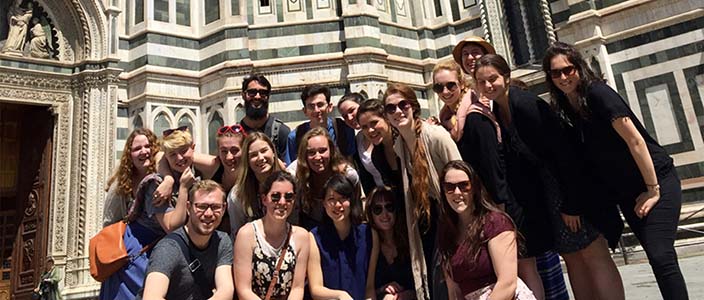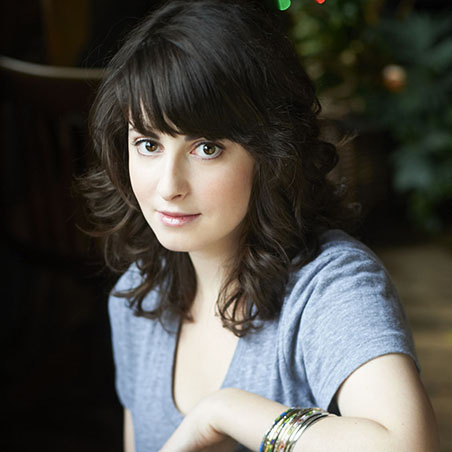Combined Honours
An EMSP student is required to take the program’s three core course doublets:
- EMSP 2001.03 & EMSP 2002.03 (or EMSP 2000.06)
- EMSP 3001.03 & EMSP 3002.03 (or EMSP 3000.06)
- EMSP 4001.03 & EMSP 4002.03 (or EMSP 4000.06)
plus at least six credit hours EMSP electives.
The requirements for the second honours subject are dependent on that department, and vary from program to program. Early Modern Studies Program students may fulfil the honours requirement in either of the two honours subjects. Usually this subject will be the one in which the student has taken more classes. In the Early Modern Studies Program, completion of the Honours Seminar (EMSP 4501.03 & EMSP 4502.03) fulfils the requirement of the honours qualifying examination; alternatively, with the approval of the director, an honours thesis (in conjunction with EMSP 4551.03 & EMSP 4552.03) also fulfil the requirement of the honours qualifying examination. Both the Honours Thesis and Honours Seminar are full-year classes. They are normally taken as part of a regular course load.
MINOR
You can take a minor in EMSP to complement your degree. Engage in an interdisciplinary exploration of the birth of the modern world.
Complete a minimum of 18 credit hours to a maximum of 27 credit hours including:
- One of the core course doublets:
- EMSP 2001.03 & EMSP 2002.03 (or EMSP 2000.06)
*Both EMSP 2001.03 & EMSP 2002.03 must normally be taken in the same academic year to meet this requirement. - EMSP 3001.03 & EMSP 3002.03 (or EMSP 3000.06)
*Both EMSP 3001.03 & EMSP 3002.03 must normally be taken in the same academic year to meet this requirement. - EMSP 4001.03 & EMSP 4002.03 (or EMSP 4000.06)
*Both EMSP 4001.03 & EMSP 4002.03 must normally be taken in the same academic year to meet this requirement.
- EMSP 2001.03 & EMSP 2002.03 (or EMSP 2000.06)
- 6 credit hours at the 3000 or 4000 level. EMSP 3001.03 & EMSP 3002.03 (or EMSP 3000.06) OR EMSP 4001.03 & EMSP 4002.03 (or EMSP 4000.06) will also fulfill this requirement).
- 6 credit hours at any level.
Explore courses
Core Courses
-
Structures of the Modern Self I
-
EMSP 2001.03
Fall
-
Scotiabank Room
TR 1435-1555
-
Structures of the Modern Self II
-
EMSP 2002.03
Winter
-
Scotiabank Room
TR 1435-1555
-
Humanity, Nature, and Environment in the Early Modern Period I: Renaissance to the Age of Reason
-
EMSP 3001.03
Fall
-
Archibald Room
M 1235-1425
W 1235-1325
-
Humanity, Nature, and Environment in the Early Modern Period II: Enlightenment to Romanticism
-
EMSP 3002.03
Winter
-
Archibald Room
M 1235-1425
W 1235-1325
-
Conceptions of State, Society and Revolution in the Early Modern Period I
-
EMSP 4001.03
Fall
-
Frazee Room
TR 1005-1125
-
Conceptions of State, Society and Revolution in the Early Modern Period II
-
EMSP 4002.03
Winter
-
Frazee Room
TR 1005-1125
Electives
-
Structures of the Modern Self I
-
EMSP 2001.03
Fall
-
Scotiabank Room
TR 1435-1555
-
Structures of the Modern Self II
-
EMSP 2002.03
Winter
-
Scotiabank Room
TR 1435-1555
-
The Lecture Series: Representations of Disability in Historical, Scientific, and Artistic Perspectives
-
CTMP 2011.03/3011.03/4011.03, EMSP 2011.03/3011.03/4011.03, HSTC 2011.03/3011.03/4011.03
Winter
-
KTS Lecture Hall/Alumni Hall
T 1605-1755
T 1905-2055
-
Violence and Wonder: Baroque Art
-
EMSP 2215.03 / EURO 2101.03
Winter
-
Classroom AA1
MW 1005 - 1125
-
Women Artists in Early Modern Europe
-
EMSP 2216.03/GWST 2216.03
Fall
-
Seminar 7
MW 1435-1555
-
The Vampire: Modernity and the Undead
-
EMSP 2313.03/CTMP 2313.03
Fall
-
KTS Lecture Hall
T 1735-2025
-
Witchcraft in Early Modern Europe
-
EMSP 2320.03 / GWST 2320.03 / RELS 2320.03
Winter
-
Online / Asynchronous
-
The Origins of Science Fiction in Early Modern Europe
-
EMSP 2340.03 / HSTC 2340.03
Winter
-
Seminar 7
MW 1605-1725
-
The Body in Early Modern Europe
-
EMSP 2350.03 / HSTC 2350.03
Fall
-
Seminar 7
MW 1005-1125
-
Magic, Science and the Occult: from Antiquity to Postmodernity
-
HSTC 2120.03 / EMSP 2360.03 / HIST 2990.03 / RELS 2120.03
Fall
-
Archibald Room
W 1735-2025
-
The Art of Global Encounters in the Early Modern Period
-
EMSP 2415.03
Winter
-
Seminar 7
MW 1435-1555
-
The Pirate and Piracy
-
EMSP 2480.03 / HIST 2750.03
Winter
-
KTS Lecture Hall
TR 1305-1425
-
Ideas of the Sea and Seafaring: Intercultural Perspectives
-
EMSP 2490.03 / CTMP 2207.03 / HSTC 2220.03
Fall
-
KTS Lecture Hall
TR 1305-1425
-
Humanity, Nature, and Environment in the Early Modern Period I: Renaissance to the Age of Reason
-
EMSP 3001.03
Fall
-
Archibald Room
M 1235-1425
W 1235-1325
-
Humanity, Nature, and Environment in the Early Modern Period II: Enlightenment to Romanticism
-
EMSP 3002.03
Winter
-
Archibald Room
M 1235-1425
W 1235-1325
-
Opera and the Idea of Enlightenment
-
EMSP 3240.03
Fall
-
Scotiabank Room
TR 1605-1725
-
Atheism in Early Modern Europe
-
EMSP 3250.03/RELS 3250.03
Winter
-
Scotiabank Room
TR 1305-1425
-
Love, Lust and Desire in Italian Renaissance Art
-
EMSP 3280.03 / GWST 3280.03
Fall
-
KTS Lecture Hall
MW 1005-1125
-
Science and Religion: Historical Perspectives
-
HSTC 3200.03 / EMSP 3330.03 / RELS 3200.03 / HIST 3075.03
Fall
-
Seminar 7
TR 1605-1725
-
Art, Optics, and Technologies of Illusion
-
EMSP 3350.03 / HSTC 3350.03
Winter
-
Archibald Room
TR 1005-1125
-
Theories of Punishment
-
EMSP 3430.03 / CTMP 3170.03
Fall
-
Online/Asynchronous
-
Conceptions of State, Society and Revolution in the Early Modern Period I
-
EMSP 4001.03
Fall
-
Frazee Room
TR 1005-1125
-
Conceptions of State, Society and Revolution in the Early Modern Period II
-
EMSP 4002.03
Winter
-
Frazee Room
TR 1005-1125
Honours Thesis & Colloquium
-
Early Modern Studies Honours Thesis
-
EMSP 4551.03 and EMSP 4552.03
Fall
Winter
-
Scotiabank Room, NAB
Cross-Cultural Encounters with the Islamic World
Ideas of the Sea
Dalhousie Selectives
Students enrolled in the Combined Honours or Minor program in EMSP can opt to have a maximum of one 3-credit hour “selective” course at Dalhousie University to count toward the EMSP part of their degree. The Registrar’s Office at King’s should be notified if students wish to pursue this option. Not all selectives are offered each year. Please consult the current timetable for this year’s offering.
Approved selectives are:
- ENGL/THEA 2215 Young Shakespeare
- ENGL 2217 Shakespeare at the Globe
- ENGL 3010 Renaissance Poetry and Culture I: More to Johnson
- ENGL 3011 Renaissance Poetry and Culture II: Donne to Milton
- ENGL 3015 Renaissance Drama
- FREN 3400 Love and Death (French Prose and Poetry)
- GERM 2011: German Folk and Fairy Tale
- HIST 2007 Atlantic World 1650-1800
- HIST 2135 The Rule of Law? Topics in British Legal History (Pre-1900)
- HIST 3101: Punishment, Crime, and the Courts in England, c. 1559-1850
- HIST 3510 Islamicate Empires, 1300-1700
- THEA 2012 Early Modern Theatre
- THEA/HIST 2402 Castles to Cafes: Dress from 1450 to 1700
- THEA/FILM/ PERF 4926: Creative Responses to a Midsummer Night’s Dream



